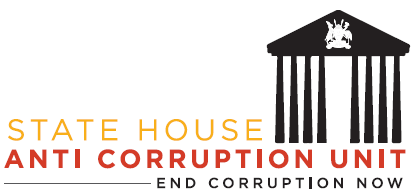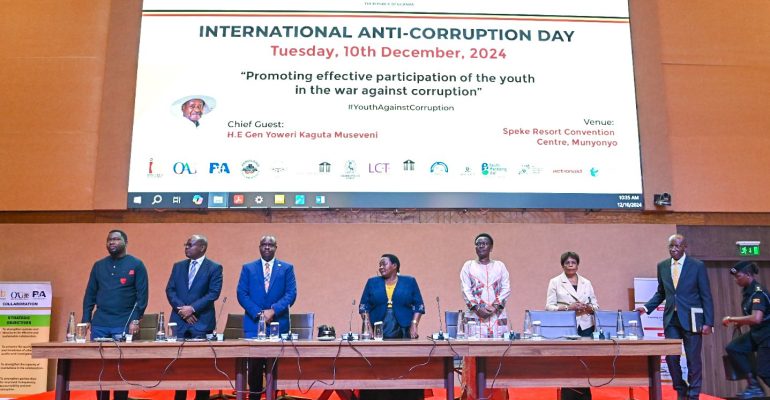
Date: December 10, 2024
The commemoration of International Anti-Corruption Day 2024 took place at the Speke Resort Convention Centre, Munyonyo, under the theme: “Promoting Effective Participation of the Youth in the War Against Corruption.” The event brought together senior government leaders, anti-corruption agencies, civil society, and youth representatives to reflect on Uganda’s progress and collective commitment to eliminating corruption.
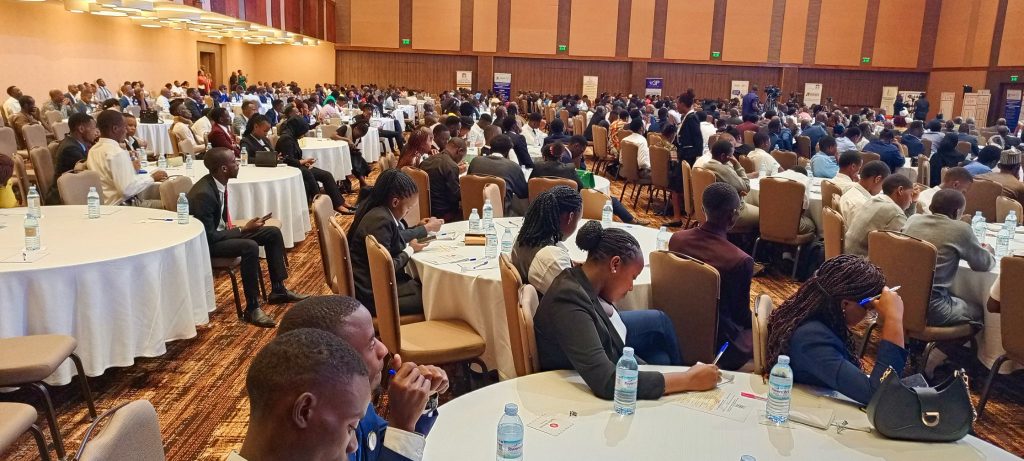
Mr. Jacob Eyeru, Chairperson of the National Youth Council, in his remarks highlighted the critical role of young people in the fight against corruption.
He stressed that for youth to fully participate, government and anti-corruption agencies must:
- Simplify reporting channels for corruption cases
- Make information more available and accessible
- Enhance youth monitoring of service delivery
- Promote open governance
- Strengthen partnerships with stakeholders
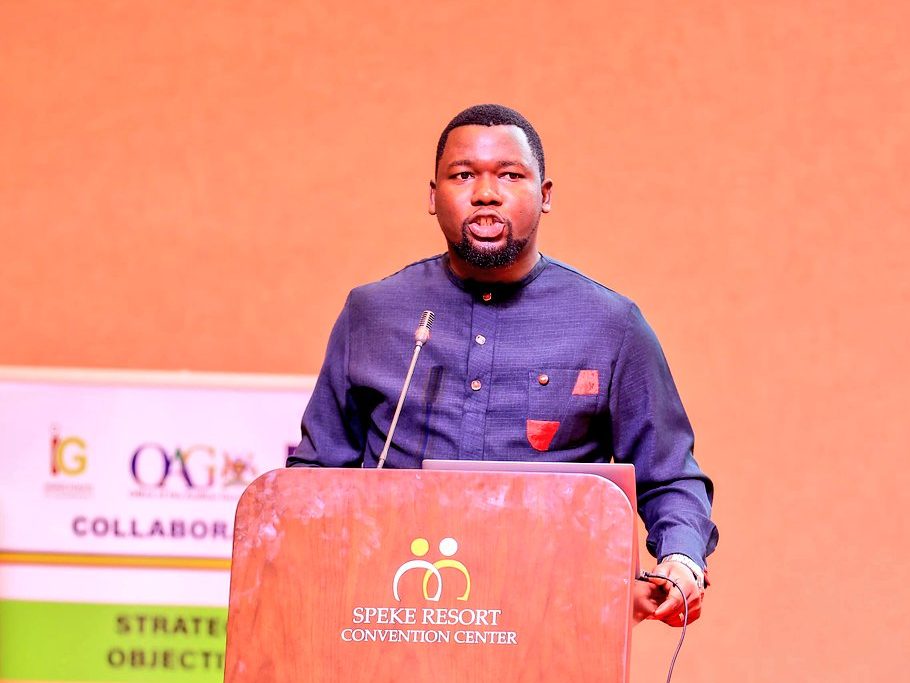
Mr. Eyeru observed that with these strategies, young Ugandans—who make up more than 78% of the population—will continue to fully engage in advancing integrity and accountability.
The Chief Guest, Rt. Hon. Prime Minister Robinah Nabbanja, representing H.E. the President, delivered a strong message reaffirming government’s unwavering resolve to fight corruption. She reminded participants that this commitment is deeply rooted in the liberation struggle, where accountability and integrity were central pillars of the Ten-Point Programme of the National Resistance Movement (NRM).
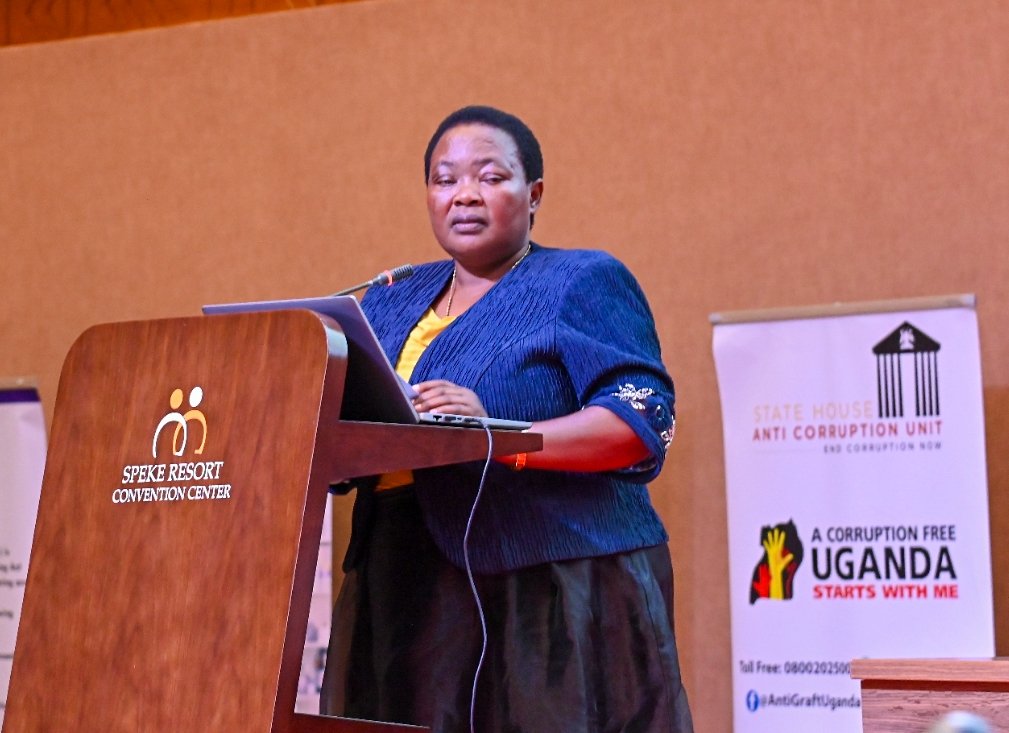
The Prime Minister highlighted that key government frameworks—including the NRM Manifesto (2021–2026), Vision 2040, and the National Development Plans III and IV—clearly outline the country’s anti-corruption agenda.
The Prime Minister urged all Ugandans, including civil society, professional associations, the media, and religious leaders, to contribute to the anti-corruption struggle by fulfilling their roles responsibly.
She called on anti-corruption agencies to strengthen cooperation, map out high-risk Ministries, Departments, Agencies (MDAs), and Local Governments, and design targeted strategies to address vulnerabilities.
She further stressed the importance of technology in reducing opportunities for corruption, citing digital innovations that minimize human interaction in service delivery. She also emphasized the role of robust audits and citizen engagement in ensuring accountability in key government programs such as the Parish Development Model (PDM) and infrastructure projects.
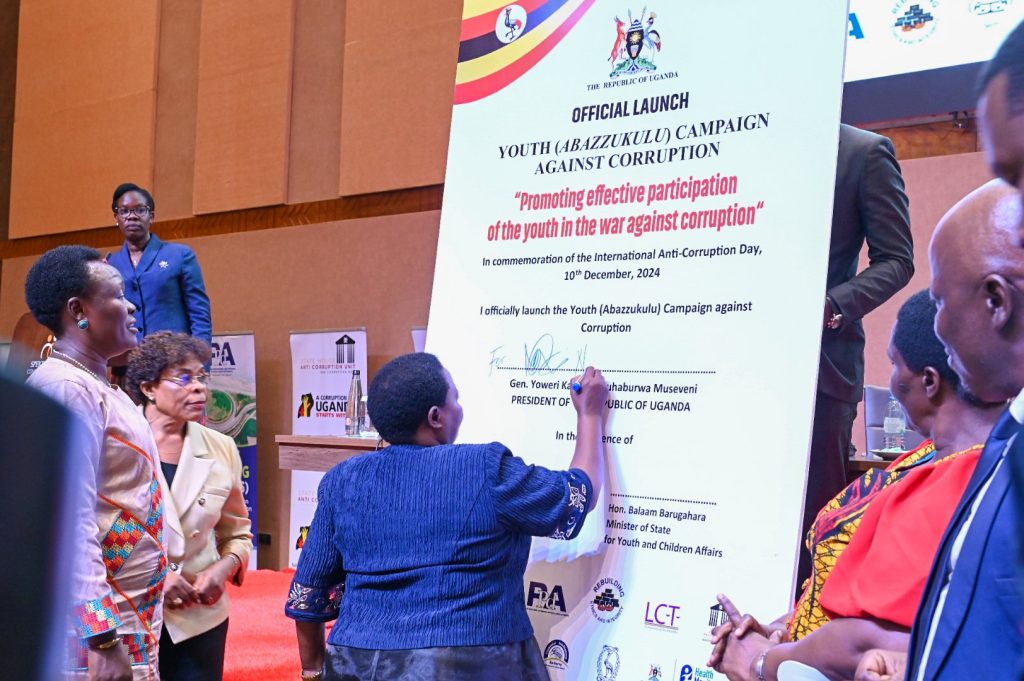
“We must work towards building a society that values transparency, accountability, and fairness—one where corruption is not tolerated and where every Ugandan has equal access to opportunities and public resources,” she concluded.
On behalf of the anti-corruption agencies, Mr. Edward Akol delivered a joint statement reaffirming their collective efforts in combating corruption. He outlined ongoing initiatives, including high-profile prosecutions, recovery of public funds, and strengthening institutional coordination to safeguard national resources.
The commemoration set the tone for continued collaboration between government, youth, and anti-corruption institutions in building a corruption-free Uganda. It reaffirmed that success in the fight against corruption requires unity, integrity, and vigilance at every level of society.
